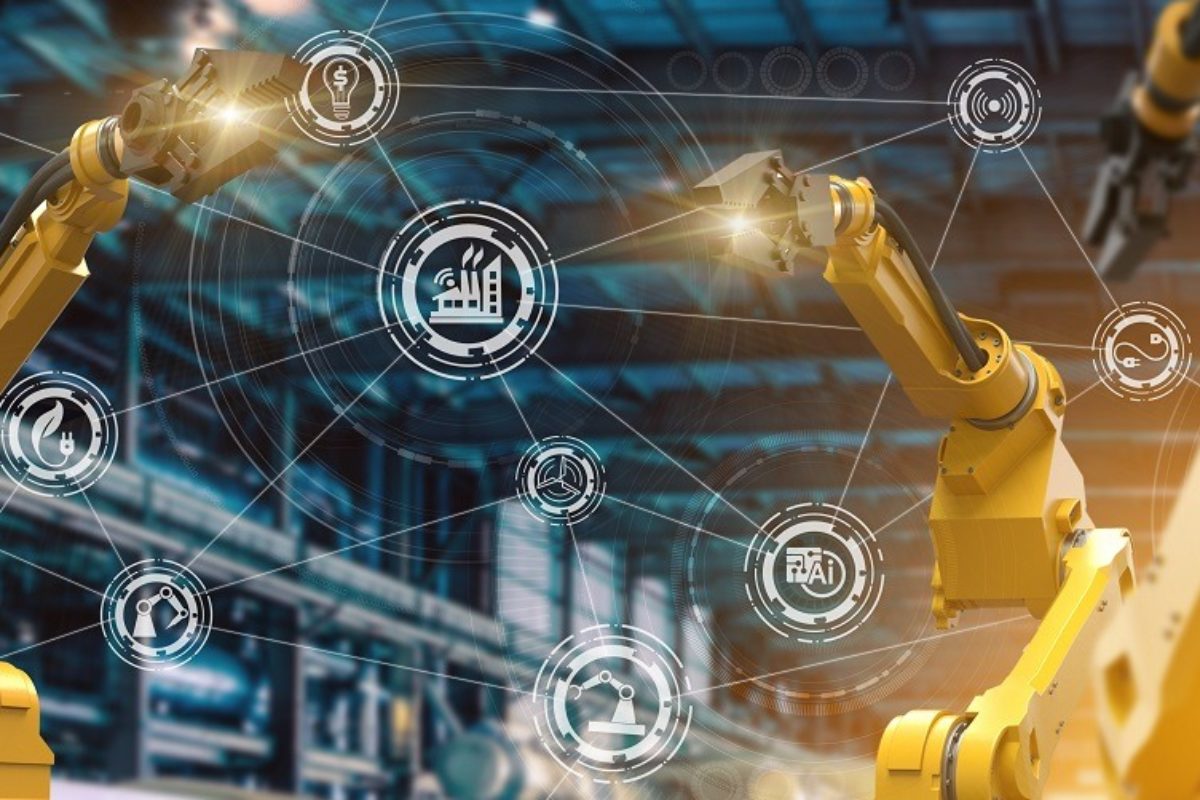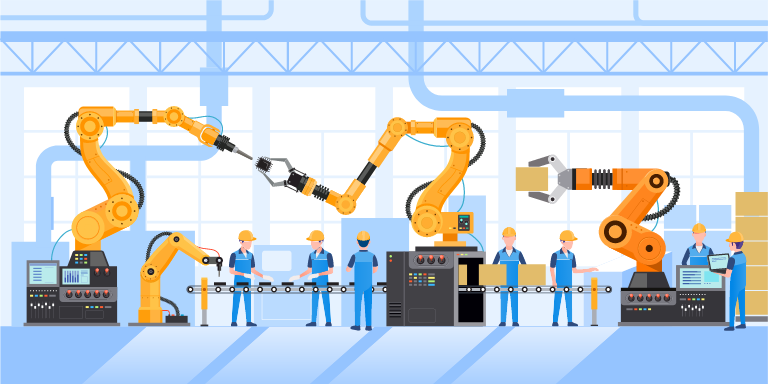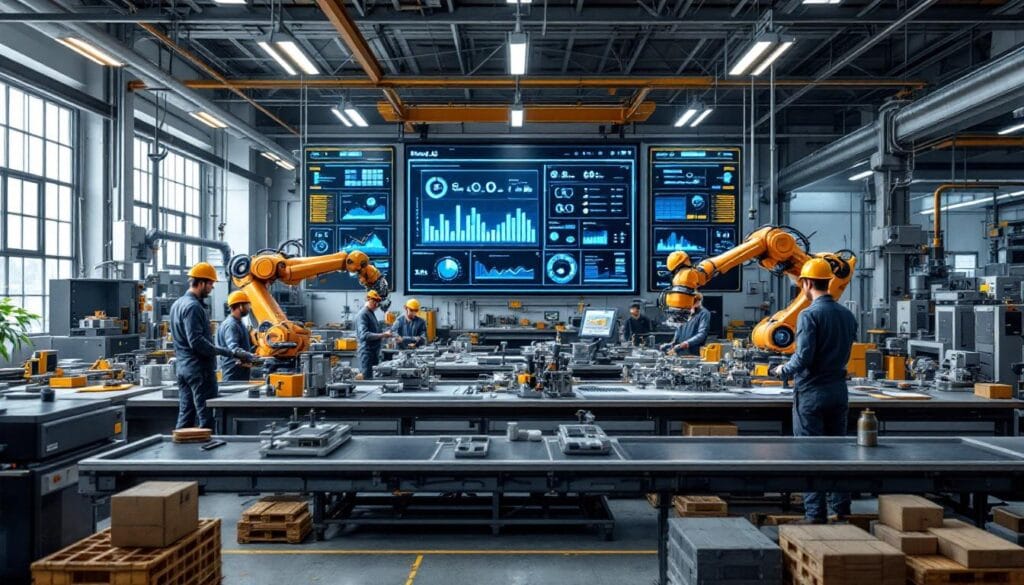In a world where technology is constantly evolving, Industry 4.0 emerges as a genuine revolution for the manufacturing sector. Talking about this fourth industrial revolution means discussing the transformation of factories into intelligent entities where connected machines and digital solutions optimize production. The Industry 4.0 market, marked by exponential growth, offers unprecedented opportunities in terms of operational efficiency, product customization, and predictive maintenance. However, with this advancement comes significant challenges, such as high initial costs and data security concerns. The sector is rapidly adapting to this new landscape, leveraging advanced technologies like the Internet of Things (IoT), artificial intelligence (AI), and digital twins to redefine global production.
The Industry 4.0 market is experiencing impressive expansion, driven by technological advances and growing globalization. Valued at USD 135.93 billion in 2022, it is expected to reach USD 579.44 billion by 2030. This growth is supported by technologies such as Internet of Things, artificial intelligence, and robots. Opportunities include process optimization, product customization, and predictive maintenance. However, challenges such as high initial costs, technological complexity, and data security persist. The Industry 4.0 market is redefining manufacturing systems while providing manufacturers with a significant competitive advantage.

Table des matières
Togglethe innovations transforming the Industry 4.0 market
Industry 4.0 represents a radical transformation of the manufacturing sector. At the heart of this revolution are emerging technologies that shape smart factories. Today’s machines are no longer just tools; they communicate and interact with each other, thereby optimizing processes for increased efficiency. With the Internet of Things (IoT) and artificial intelligence, companies can now predict and prevent equipment failures, minimize downtime, and improve overall productivity.
In addition to efficiency, Industry 4.0 offers unprecedented customization. Manufacturers can quickly adapt their production lines to meet specific consumer demands, opening up new market opportunities. Waste reduction also makes processes more sustainable, meeting growing environmental requirements. Thus, innovations propel the sector towards an era where flexibility and sustainability are major assets.
issues and challenges of adopting Industry 4.0
Despite its potential, the adoption of Industry 4.0 comes with several challenges. Among the most notable are high initial costs. The technologies required to transform manufacturing systems are expensive, posing a problem for many small and medium manufacturers. Companies seek to balance the initial investment with the long-term savings promised by better efficiency. Furthermore, technological complexity demands specialized expertise that many struggle to acquire.
future trends and opportunities in Industry 4.0
The future of Industry 4.0 looks promising, with significant opportunities in new markets. The rise of developing regions, such as Asia and Africa, creates new demands for advanced manufacturing technologies. Real-time data and digital twins enable even more precise customization solutions. The convergence of 5G and IoT technologies will further stimulate the evolution of global supply chains. The potential of these solutions to transform manufacturing is immense, opening an era where technological integration will be synonymous with competitiveness. For more information on these developments, check out the discussions and analyses at Industry 4.0.
[#Article] 🤖 Industrie 4.0 : le start-up studio @OSSVentures annonce une levée de fonds de 8,5 millions d’euroshttps://t.co/NTh6V1deXS #IA #IntelligenceArtificielle
— Actu IA – Intelligence Artificielle (@ActuIAFr) June 28, 2024




